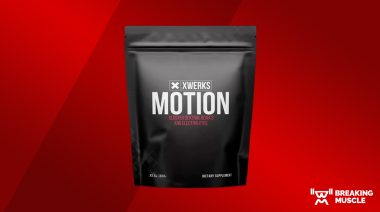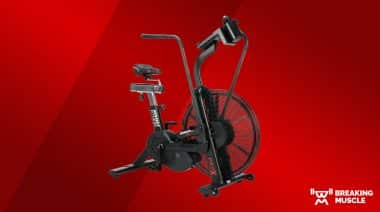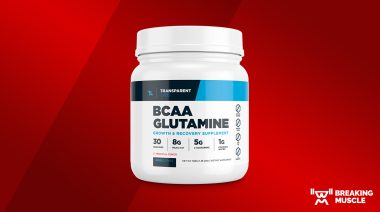Betaine, so named for its initial discovery as a component of beets, is an osmolyte also present in spinach and whole grains. An osmolyte is a substance that helps maintain the fluid volume in our cells by adjusting osmosis. In people, osmolytes affect all cells and are of particular importance in the kidneys. As well as playing a big part in general human health, betaine has advantages for athletes in particular.
The supplemental use of betaine has so far received mixed review, though. Its effect on both strength and endurance seems to be inconsistent. Since betaine plays a role in cell volume and cell health, it may also be useful for maximizing hypertrophy. However the jury is currently out on this too. In a recent study in the Journal of the International Society of Sports Nutrition, researchers took a look at the effects of betaine supplementation on a six-week training program, to see how participants fared against a placebo group.
The training program used was a fairly standard bodybuilding style program. The major difference between the groups was the betaine. Those who took the betaine supplement took 2.5 grams daily. That’s about as much as you’d get from eating a little over a pound of spinach. That’s a lot of spinach.
In the end there were a few significant differences between the groups:
- Arm size, but not leg size, was larger in the betaine group, thus some hypertrophy was attained.
- Bench press volume, was improved for the betaine group, but squatting volume overall was not. This perhaps resulted in the improvements in hypertrophy found in the arms versus the legs.
- Body fat percentage and fat mass both went down, and lean body mass went up in the betaine group, but not the placebo group.
- There were no performance differences between the groups at the end of the six weeks, but there was a trend to an improvement in vertical jump power in the betaine group.
It should be noted that this study had corporate funding from DuPont Nutrition and Health, who also employ one of the researchers (but not the lead researcher). That said, the study was a double-blind design, meaning that not even the researchers knew which participants were taking the betaine supplements. The design of the study was such that it should have eliminated any of the competing interests involved, leaving the betaine to speak for itself.
It seems that over six weeks, using a standard hypertrophy program, betaine may indeed assist in hypertrophy and exercise volume. It’s possible that the size difference was due to greater intracellular fluid, an action that betaine does have a role in. But since betaine plays a critical role in general health, it seems both a safe supplement and one that holds potential value to athletes – especially those looking to improve their appearance and reduce fat.
References:
1. Jason M Cholewa, et. al., “Effects of betaine on body composition, performance, and homocysteine thiolactone,” Journal of the International Society of Sports Nutrition, 10:39, 2013
Photo courtesy of Shutterstock.






